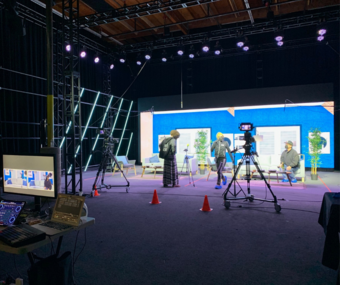
#NEWPLAY TV
@upnextbayarea blogs about "Theatre via Livestream"
Reposted from Up Next Blog
Two teens converse about #NEWPLAY TV, the #newplay initiative that can be found on newplaytv.info
A: As a bit of background, first let’s talk about what New Play TV is, exactly. I guess I’ll do the intro...
According to its profile on its livestream page, New Play TV is “a shared-resource for live events and performances relevant to the new works theater field. #NEWPLAY TV's mission is to break geographic isolation, promote resource sharing, and to develop our knowledge commons collectively.” So basically, it's a livestream channel that archives past livestreams, and it's devoted to a conversation about creating new plays in different places. If you take a look at the archives, you can find a whole spectrum of events relating to new plays that were livestreamed: symposiums, conferences, panel discussions, and even live performances (my personal favorite). I first heard about it through the very active, always interesting #newplay community on Twitter, and I’ve really enjoyed watching the conversations about play development (and, of course, the plays themselves). And we’ve both watched...two new play livestreams so far? On The Spectrum (from Mixed Blood Theatre in Minnesota) and the SF One Minute Play Festival (from Playwrights Foundation in San Francisco), right?
Y: Well, two [things] -- I missed seeing On The Spectrum live, but I still watched it afterward from the recordings.
A: Gah, a mere technicality. But we both really liked that one. Here's a bit of background for you readers: Mixed Blood Theatre has been getting talked about a lot lately, especially since it introduced its Radical Hospitality program, which provides no-cost seats to any audience member starting in the 2011-2012 season -- pretty awesome. (That’s a whole ‘nother conversation, but I really recommend checking the link out and reading up about it.) For me, getting to see a Mixed Blood show from the Bay Area was one of the most exciting parts of that livestream, but I remember hearing you say that the show and the choice to broadcast it really resonated with you for other reasons.
Y: Yes. On The Spectrum dealt with the issues and realities of autism -- what it is, how it is handled, how it is perceived. Autism is being diagnosed more and more often as time passes, and yet it remains rather misunderstood and misrepresented. On the Spectrum provides a window into that world, in an understandable and relate-able medium, and as such is a necessary experience for anyone who -- by a friend, a relative, or anything -- will ever interact with somebody on the autism spectrum. The decision to livestream On The Spectrum allowed its message and its vision to reach not only the patrons of the theatre, but the entire World Wide Web, regardless of where they were when. The availability of the recording allows any autistic person online -- “all [those] people who everyone thought couldn’t talk, or were retarded, [but began] communicating online and their brains were suddenly revealed”, as Iris says it in the play itself -- to see the play, and pass it along, providing a much-needed platform for discussion and understanding. That ability, to watch it, and understand it, and spread it, is essential to the goal of the play, and a perfect example of why a play should be livestreamed. (more on On The Spectrum here)
A: We actually went to see the SF One Minute Play Festival live, and then watched it on livestream the next day. That was lots of fun. The One Minute Play Festival happens across the country in different theaters -- I think the next one happens at Boston Playwrights' Theatre. I enjoyed seeing the show more in the theater – you get the whole atmosphere of show-going there – but I confess that I found it nice to be able do some laundry-folding/other household tasks during intermission the second time around (i.e., during the livestream), and I LOVE being able to watch it as many times as I want. And again, like you said before, it allows people who wouldn't otherwise be able to see the show (whether because of physical and/or geographic limitations, or just because there aren't enough hours in the day) to see it. For example, playwright Marisela Treviño Orta (who had two plays in the festival), watched the show over livestream, and through the Twitter integration on the right had side of the streaming page was able to interact with the show while it was happening, which I thought was exciting to watch as well.
SIDE NOTE: Possibly one of my favorite results of this livestream: I can listen to “One Minute Musical” by Lauren Gunderson as many times as I want to. (Current iTunes playcount: 17) I also can show the one minute plays to friends in any place at any time (most recently, “Hamlet” by Aaron Loeb with someone in Boston). (Even though that last bit sounded like a commercial, I didn’t intend it to. I actually really enjoy being able to share theaterical experiences with as many friends as possible -- and the “inside” jokes that are subsequently understood/created as a result are great.) And because I don’t fully understand all of the legal-y stuff, will you talk a bit about Creative Commons and what it means for New Play TV broadcast to be published under it?
Y: Okay. Creative Commons is a set of “copyleft” licenses -- copyright licenses designed to encourage and foster sharing, copying, and redistributing the licensed work, as opposed to normal copyright licenses, which restrict copying. Creative Commons allows people to redistribute, remix, and share anything they want that’s licenced with it. What that means, in this case, is that you have a bunch more options than you otherwise would with the recordings. Because it’s under a Creative Commons license, you can copy to your computer and make your own copy of the videos of On the Spectrum, or (as I’ve done) copy the audio track of "One Minute Musical" so you can listen to it on your iPod, and if you wanted, you could use parts of the festival or play in, say, your own music video, or rap, or some “remix theatre”, where you splice everybody’s words together to make your own script (A One Minute Play made out of clips from the One Minute Play Festival, maybe?). You can do it -- and the only thing it requires is that you let other people, if they want, be able to use your own creation in the same way, by also releasing it under a Creative Commons license.
A: Yes, you definitely explained that better than I could have. One last question: did you have any favorite plays from this year’s One Minute Play Festival? (I'm declining to answer this question because I'm extremely biased. I will say, though, that Aaron Loeb's “Hamlet [as Recited to and Transcribed by Siri on the iPhone 4S]” [here at 36:15] and Lauren Gunderson's “One Minute Musical” [here at 1:36:28] have seen the most replays via my computer. And there's no bias there. Just awesomeness.)
Y: Well, I’m really bad at picking favorites -- especially when there are so many which I enjoyed to much, but I’ll try. I’ll probably miss one or two, though. Or five. Or, you know, seventy-minus-however-many-I-do-choose. But a few that really stuck out to me (that you haven’t already mentioned), were, definitely “Acting Like Children’s Story” -- ‘**** GOODNIGHT MOON!!!’ got me cracking up (at 1:27:33); in “What Particular Skills Do You Bring To The Workforce” I found the awkward, not-really-sure-of-himself interviewee who was asked to talk about himself really endearing (at 51:42); and I loved the thoughts-during-meditation of “Zazen”, by Geetha Reddy (at 43:45).
But really, pretty much all of them.
About HowlRoundTV
HowlRound TV is a global, commons-based peer produced, open access livestreaming and video archive project stewarded by the nonprofit HowlRound. HowlRound TV is a free and shared resource for live conversations and performances relevant to the world's performing arts and cultural fields. Its mission is to break geographic isolation, promote resource sharing, and to develop our knowledge commons collectively. Participate in a community of peer organizations revolutionizing the flow of information, knowledge, and access in our field by becoming a producer and co-producing with us. Learn more by going to our participate page. For any other queries, email [email protected], or call Vijay Mathew at +1 917.686.3185 Signal/WhatsApp. View the video archive of past events.
Find all of our upcoming events here.

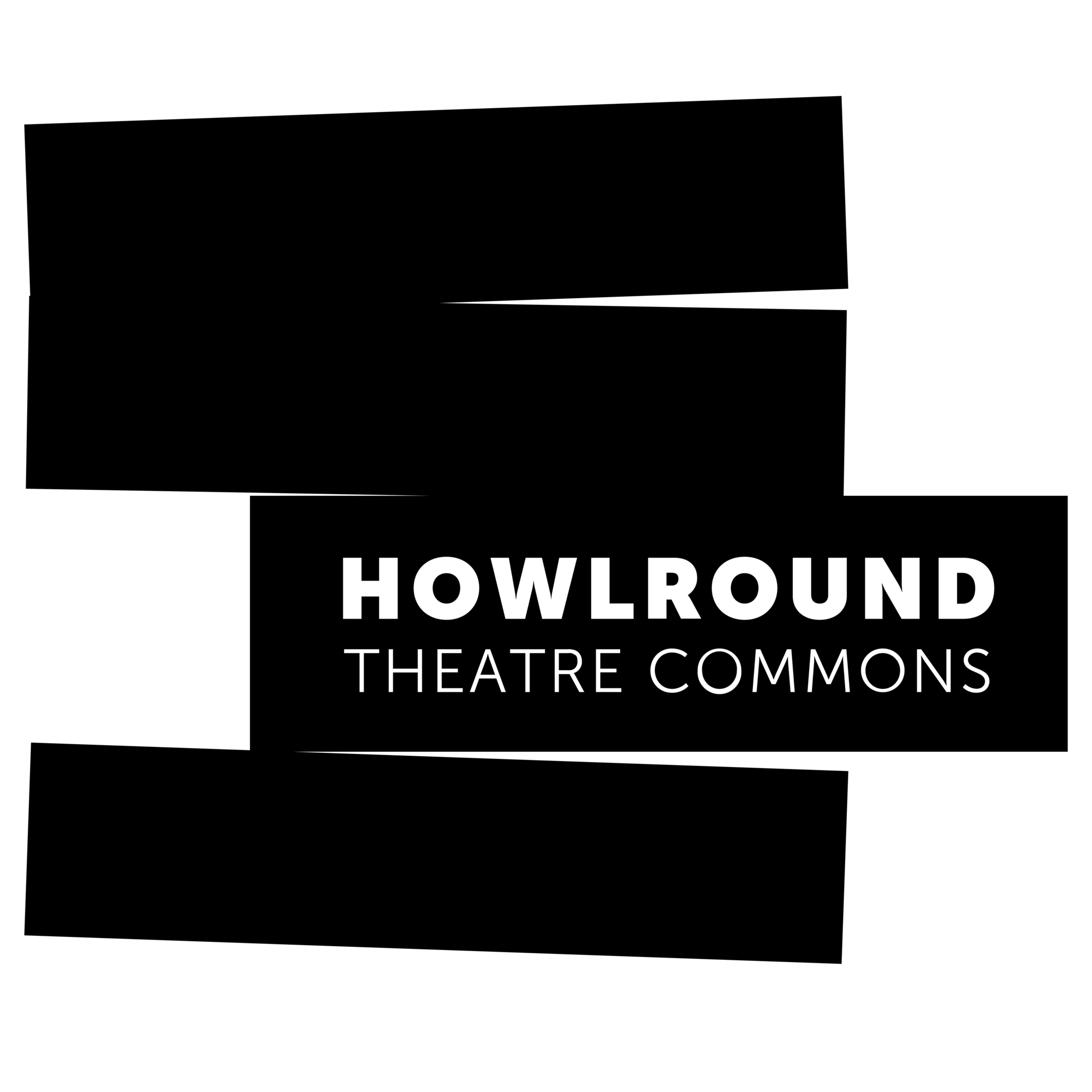
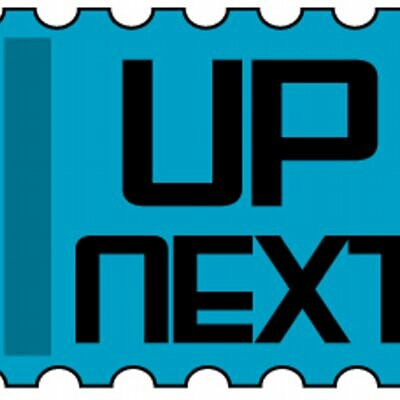



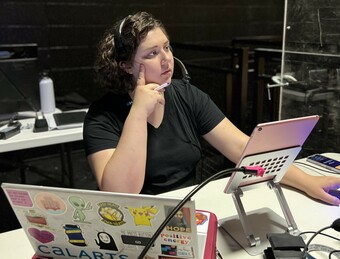

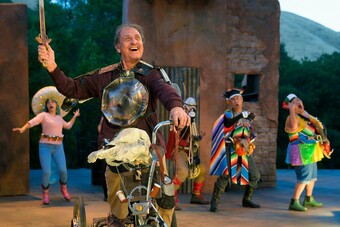



Comments
The article is just the start of the conversation—we want to know what you think about this subject, too! HowlRound is a space for knowledge-sharing, and we welcome spirited, thoughtful, and on-topic dialogue. Find our full comments policy here